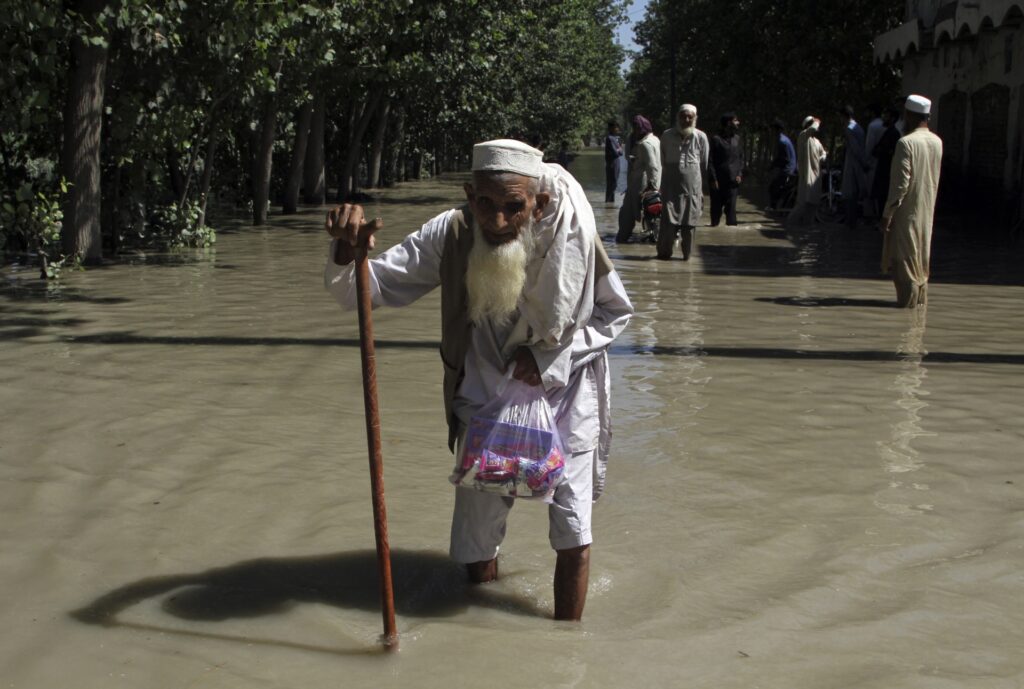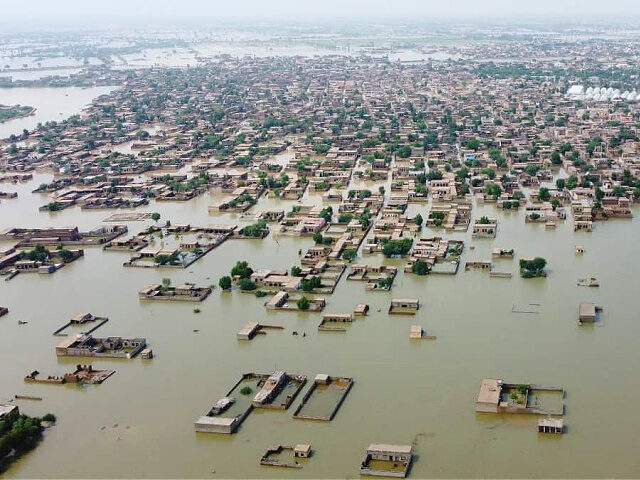Roughly a third of Pakistan was considered underwater as of Monday due to ongoing flooding that has killed at least 1,136 people since the nation’s monsoon season began in June, Pakistan Climate Change Minister Sherry Rehman told Agence France-Presse (AFP).
“Literally, one-third of Pakistan is underwater right now, which has exceeded every boundary, every norm we’ve seen in the past,” Rehman told AFP on August 29.
“When we send in water pumps, they say ‘Where do we pump the water?’ It’s all one big ocean, there’s no dry land to pump the water out,” she explained.
“We’ve never seen anything like this,” Rehman stated.
“To see the devastation on the ground is really mind-boggling,” she told the news agency, adding that the natural disaster is a “crisis of unimaginable proportions.”
Pakistan declares national emergency after devastating floods kill nearly 1,000 people and leave more than 30 million “badly affected” as monsoon rains continue ⤵️ pic.twitter.com/gcKmty1Vox
— Al Jazeera English (@AJEnglish) August 28, 2022
Much of Pakistan began to experience flooding in recent days after heavier rains than usual ushered in the country’s annual monsoon season in June. The torrential downpours continued unabated for weeks and followed a period of drought creating the perfect conditions for flash flooding. Vast swaths of farmland across Pakistan’s southeastern province of Sindh and western province of Balochistan were submerged by rainwater on Monday. Hundreds of roads and bridges that once crisscrossed the country’s north were washed away this week, cutting off entire villages and forcing Pakistani authorities to attempt to rescue some villagers via helicopter.
“Village after village has been wiped out. Millions of houses have been destroyed,” Pakistan Prime Minister Shehbaz Sharif said on August 29 after flying over Pakistan’s northern Swat Valley in a helicopter to assess flood damage.

A displaced man wades through a flooded area after fleeing his flood-hit home, on the outskirts of Peshawar, Pakistan, Aug. 28, 2022. (AP Photo/Mohammad Sajjad, File)
Rehman said Pakistan’s breadbasket region in southern Sindh province would be unable to produce grain in the coming months due to the flooding’s impact and thus predicted that the nation would suffer future food insecurity.
“Sindh is half of Pakistan’s breadbasket and will not be able to grow anything at all next season,” she concluded.
“Not only will our exports be impacted, but our food security will take a hit,” she stated.
“Almost half of the country’s cotton crop has been washed away and vegetable, fruit, and rice fields have sustained significant damage,” Pakistan Planning Minister Ahsan Iqbal told Reuters this week.
Pakistan’s government estimates that the nation’s latest floods have affected 33 million-plus Pakistanis, or one in seven people, since June. Observers have already compared this summer’s ongoing flood to Pakistan’s deadliest flood on record, which killed over 2,000 people in 2010.

COMMENTS
Please let us know if you're having issues with commenting.